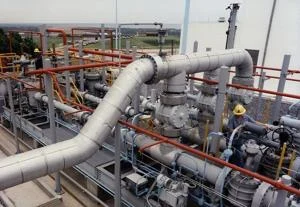The U.S. Department of Energy has authorized an emergency exchange from the Strategic Petroleum Reserve (SPR) with ExxonMobil Corporation to address “logistical challenges” impacting crude oil deliveries at its Baton Rouge refinery.
The DOE SPR emergency exchange is the latest of several in the last few decades where SPR reserves played a vital role in response to natural disasters or other incidents.
The DOE authorized up to one million barrels of crude oil to be released from the SPR to support ExxonMobil’s restoration of refinery operations that were reduced because of “an offshore supply disruption,” it said. ExxonMobil will return the borrowed crude, as well as additional barrels of crude oil, to the SPR at no cost to the taxpayer, the DOE said.
ExxonMobile requested the exchange because of quality issues with Mars crude from its offshore rigs, including contaminated crude with high levels of zinc, Bloomberg News reported. Because high levels of zinc can damage refinery equipment, the refinery couldn’t use it and was attempting to resell it in the spot market, Bloomberg reported. ExxonMobile hasn’t released a statement on the exchange request, according to its website.
“An oil supply disruption has led to reduced operations at the Baton Rouge refinery, limiting production of transportation fuels,” DOE said. “The exchange is intended to ensure the maximum supply of refined fuel products in the Gulf Coast region while ExxonMobil resolves logistical challenges.”
One of the largest refining and petrochemical complexes in the world, Exxon Mobile’s Baton Rouge refinery processes roughly 520,000 barrels a day and manufactures roughly 300 products, including “motor gasoline, diesel, aviation gasoline, lubricating oils, waxes, petroleum coke, liquefied petroleum gas and chemical feedstock,” according to its website.
Under federal law, the Secretary of Energy is authorized to allow for emergency SPR exchanges in response to supply disruptions. Emergency SPR exchanges have helped avert refinery shutdowns and played a critical role to ensure crude production and distribution continued, especially during a natural disaster and ship channel closures, the DOE explains.
In June 2000, for example, the DOE authorized an SPR emergency exchange with CITGO and Conoco with each receiving 500 Mbbl in response to the Calcasieu Ship Channel being blocked from a submerged barge, preventing incoming crude oil shipments to their refineries. In June 2006, an exchange of 750 Mbbl of sour crude was made with ConocoPhillips and Citgo in response to the channel being closed for several days due to storm water and oil that was released.
In October 2002, an SPR exchange of 98 Mbbl was authorized with Shell Pipeline Company to secure Capline storage tanks in advance of Hurricane Lili.
In September 2004, an SPR exchange of 5.4 MMbbl of sweet crude due was authorized to offset disruptions in the Gulf caused by Hurricane Ivan.
In September 2005, the DOE approved six requests for emergency SPR exchanges of crude oil to address supply shortages caused by oil production and distribution facilities shut down ahead of Hurricane Katrina. Katrina caused more than $160 billion worth of damage, wiping out 25 percent of New Orleans’ population, killing 1,392. The Category 3 hurricane caused massive destruction due to failed levees that collapsed.
After a January 2006 barge accident in the Sabine Neches Ship Channel caused the channel to be closed to deep-draft vessels, the DOE exchanged 767 Mbbl of sour crude with Total Petrochemicals USA to ensure its refinery wouldn’t be shutdown.
In September 2008, after hurricanes Gustav and Ike decimated Gulf communities, the DOE authorized an SPR exchange of nearly 5.4 MMbbl to Marathon, Placid, ConocoPhillips, Citgo and Alon USA after their supplies were cut off. The companies repaid the SPR with a premium of 93.35 Mbbl, DOE said.
In August 2012, in response to Hurricane Isaac, Marathon Petroleum Company received an emergency exchange of one MMbbl.
In September 2017, after Hurricane Harvey hit, more than 5.2 MMbbl from the SPR was exchanged to Phillips 66, Marathon, Placid, and Valero “to cover supply shortfalls due to conditions in the Gulf of Mexico and Houston region. All barrels, including premium barrels, were returned by February 2018,” DOE said. Harvey, the Category 4 hurricane that primarily impacted the Houston area, caused $125 billion worth of damage and 68 direct deaths and 35 indirect deaths in Texas.






